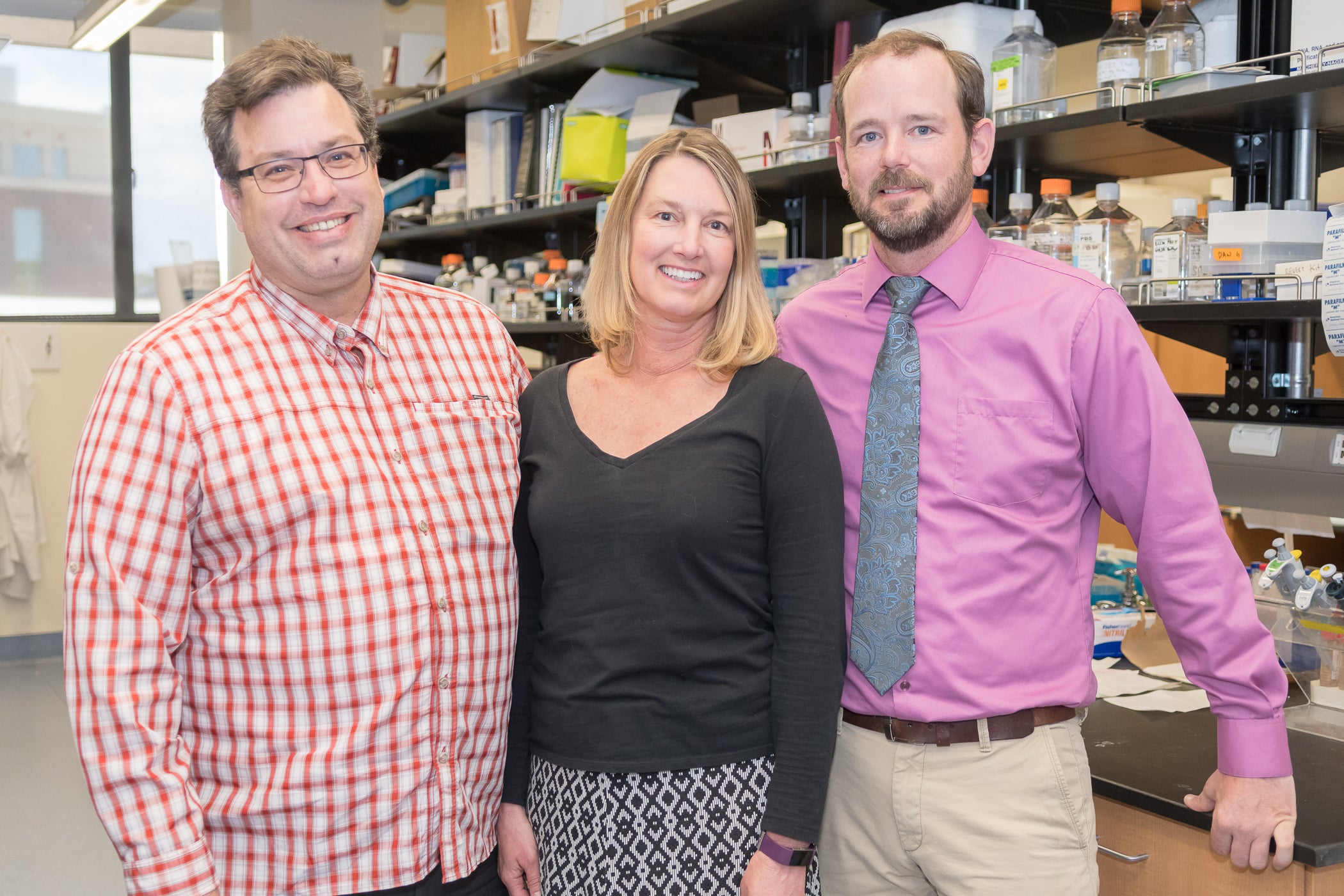A Boise State University research team comprised of Cheryl Jorcyk, a professor in the Department of Biological Sciences and the director of clinical translational research, professor Don Warner and assistant professor Matt King from the Department of Chemistry and Biochemistry, recently was awarded a $200,000 METAvivor grant to develop a potential therapeutic for advanced breast cancer metastasis to bone.
As Jorcyk explained, despite new breast cancer therapies and improved screening and detection methods, the survival rate for Stage IV metastatic breast cancer patients remains low. Many patients with metastatic disease suffer from bone metastases, which is why Jorcyk and her team are working to develop an anti-inflammatory therapy with minimal side-effects that would reduce or eliminate breast cancer bone metastasis and prolong lives.
“Almost 80 percent of all women with metastatic breast cancer have metastasis to bone, so a novel therapeutic with a low side-effect profile would be beneficial for patients by reducing or eliminating breast cancer bone metastases and prolonging lives,” Jorcyk said.
The Boise State team received one of 12 national grants totaling $1.65 million from the metastatic breast cancer research, awareness and support organization. Since its founding in 2009, METAvivor has put 100 percent of donations into its peer-reviewed research grant program.
The team’s proposed drug would work by inhibiting the action of a protein called oncostatin M (OSM). OSM is an inflammatory protein important in normal wound healing and also found with diseases such as arthritis and cancer. In breast cancer, OSM is made by cells of the immune system as well as tumor cells – in fact, Jorcyk’s previously published research demonstrated that OSM is critical for bone metastasis in breast cancer, which is why her team will be working on identifying, assessing and testing potential OSM small molecule inhibitors.
Because OSM drives inflammation, blocking OSM could also reduce inflammatory symptoms of the disease, as well as improve other inflammatory conditions including arthritis, gingivitis and inflammatory bowel disease (IBD).
“Our long-term goal is to develop an FDA-approved drug for the treatment of OSM-regulated bone metastasis that will decrease the mortality associated with Stage IV breast cancer,” Jorcyk said. “Individuals who have had their primary tumor surgically removed and whose tumor cells express high levels of OSM and/or OSMR would be ideal candidates for this anti-OSM therapy.”
BY: CIENNA MADRID PUBLISHED 6:23 AM / MAY 3, 2018
